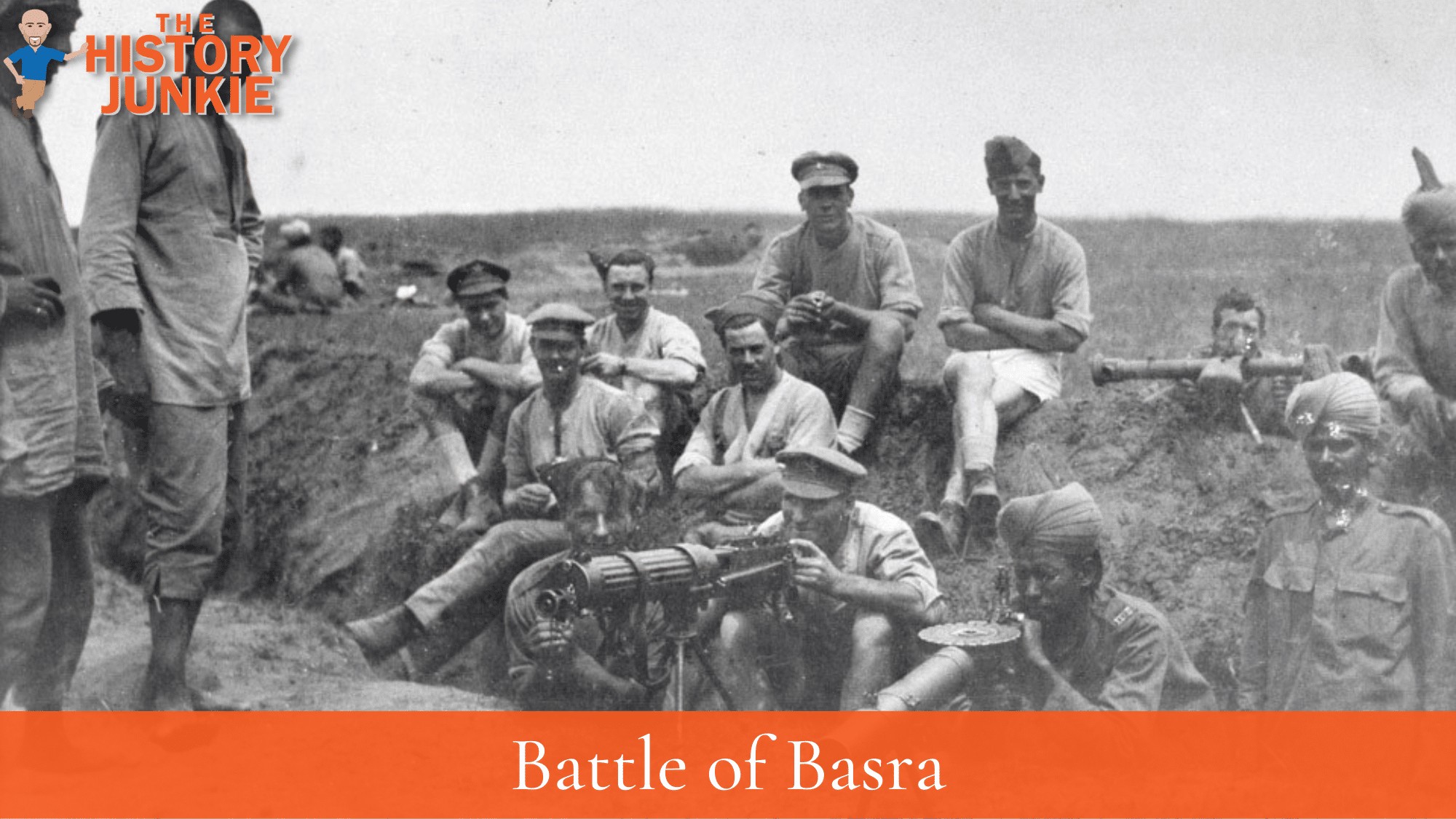The Battle of Basra on November 21, 1914, marked the opening of the Mesopotamian Front of World War 1. Its capture would hurt the Ottoman prestige in the area.

Jump to:
Overview
In October 1914, the Indian government sent 5,000 troops of the Indian Expeditionary Force D to the Persian Gulf under the command of General Sir Arthur Barrett.
The force was stationed at the mouth of the Shatt-el-Arab and supported by the Royal Navy's Gulf Division. Its original mission was to protect against territorial incursions from the Ottoman Empire, which was then neutral.
The British government was especially keen to protect Abadan and its associated pipeline to the Persian oilfields.
The London War Office favored a cautious strategy of defending British oil supplies in Mesopotamia, while the government in India favored a more aggressive strategy of forward defense.
Barrett's instructions included a provision to attack the Turk-controlled port of Basra in the event of war, even though this was not the War Office's preferred strategy.
Basra, a city on the River Euphrates with a population of approximately 60,000 people, was a mixture of Muslims and Christians.
The Battle
On November 6, 1914, the Anglo-Indian force attacked Basra. Brigadier-General Delamain's advance force of 600 troops secured the poorly defended coastal batteries at Fao before moving upriver, supported by naval sloops and an armed merchant cruiser.
General Barrett quickly defeated a small Turkish force at Abadan on November 7. He then reinforced his army with 7,000 Indian troops and light artillery.
Knowing that a larger Turkish force was assembling at Basra, Barrett resolved to attack without delay.
General Barrett captured Turkish defensive positions at Saihan on November 19. The British force faced unfavorable conditions, including heavy rainfall and heat mirages.
The use of 18-pounder artillery scattered the defenders, but most of them escaped under the cover of a heat mirage. The cavalry was unable to pursue them due to the thick mud.
The Turks hurriedly attempted to close the Shatt-el-Arab by tying a string of ships across it and sinking them. However, a cable snapped, leaving a gap that allowed British vessels to pass through.
Aftermath
The following morning, Barrett received news from a local Arab Sheikh that the Turks had withdrawn from Basra.
Two battalions then sailed to the city and entered it on the evening of November 21st. Barrett officially took possession two days later.
The British-led force suffered under 500 casualties, while the Turks lost over 1,000. Crucially, the British had secured and ensured a continuation of oil supplies in the Middle East.
The Indian administration was encouraged by the apparent fragility of Turkish defenses and decided to extend Anglo-Indian operations further than previously expected by London.
